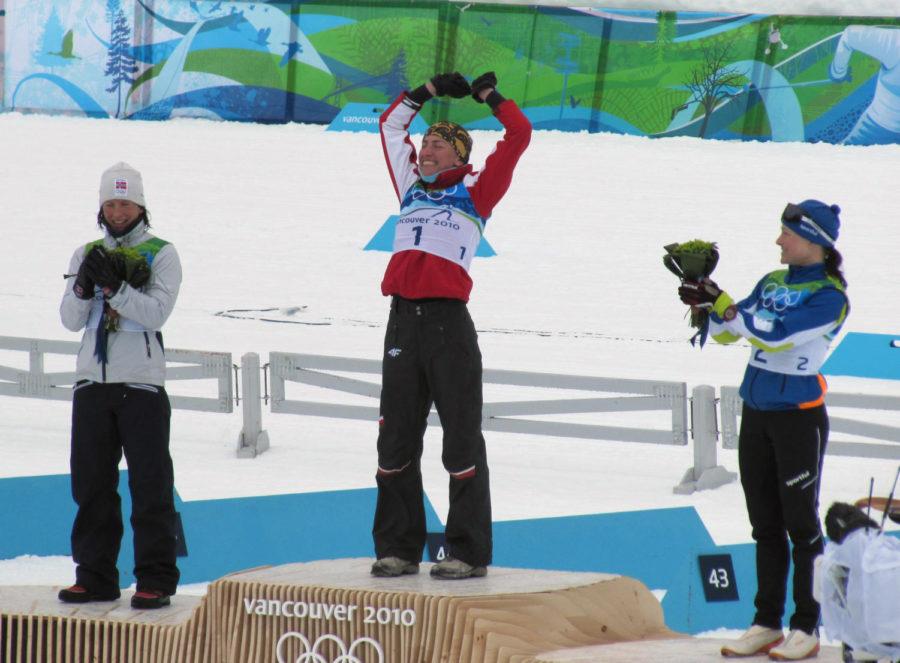Maxwell: Olympics reveal inadequacies of average people
Once again the Olympic games have started, bringing together the best athletic competitors from around the world to compete against each-other and make the rest of the world feel inadequate.
February 21, 2014
The Olympic Games are again nearing the end, having brought together the best athletic competitors from around the world to compete against one another and make the rest of the world feel inadequate. As people everywhere avidly watch these athletes perform extraordinary feats that have never before been achieved, there is a common feeling being shared among fans of disappointment regarding their own lives and their failure to become such amazing competitors themselves.
Obviously, most people who are only spectators should feel ashamed, because they will never be as skilled as the athletes they admire. The harsh reality is that the Olympics are meant to show the majority of its viewers how they once had the same potential for greatness but have since tragically wasted it. In the same way we experience remorse at the loss of someone we love, most of us deserve to feel remorse for the loss of meaning in our own lives.
When watching the Olympics, some of us may gain a sense of hope that we could be the ones competing someday. But feeling such hope is wrong. How can one be so sure that the time has passed to be an Olympic-level athlete? Because we are old. A standard measure of expertise is spending ten or more years actively and regularly engaged in an activity. This means if a person were to start trying to become good at something at the age of twenty, the Olympics should theoretically be within their reach when they are about thirty. However, research suggests that the peak of performance happens prior to turning thirty, which is why many athletes in the Olympics are much younger.
Indeed, becoming an expert must start at a young age. Our parents may be to blame for most of our lifelong failures, but much of the blame in this area lies with ourselves. It is unfortunate that many of us did not have the dedication as children to focus on a specific skill intently enough to sacrifice almost all other recreational activities. Instead, we squandered the time given to us on many different endeavors rather than discarding the trivial joys of childhood to concentrate on something we might someday excel in at a competitive level.
Sadly, many of us continue to do the same throughout our entire lives. Clearly, almost every task we do everyday is worthless, especially if such tasks are too diverse. We cannot be experts in multiple things, so being anything less than fully devoted to one thing is essentially the same as failing at everything. Many of us foolishly think that we do things just for fun, but having fun only truly begins when we reach the point of obsession. Go big or go home.
Participating in something to the point that it is merely a hobby is not enough. Friendly competition should not exist. The only point of putting people or teams against each other is to see who is better and to award the winner. An article printed here in the Iowa State Daily itself explains that fact well, even though that piece is wrong in how it condemns all college sports. We should spend most of our free time focused on how to do better the next time we face anyone else who is also attempting to become more skilled in the one thing that brings value to our own lives.
Though it is apparent that most of us have failed to become someone significant, this fact should not discourage all college students here at Iowa State to forget trying to become international competitors. In fact, many students here would be much more useful to society in such a role rather than continuing to struggle attempting to become mediocre students.
As for the rest of us, we can only watch the Olympics in disbelief and regret. Remember, a person is only successful if they become known for being the best at something. Unfortunately, it seems as if we will never deserve to experience genuine success. We must accept that our lives will never be anything worth watching live on network television and do the best we can with the scraps of our humanity that remain.
At this point, the best we can hope for is to try and become a valuable asset to the organizations that will find us useful after graduation. From there, we can work our way into earning a modest living and hopefully finding someone kind enough to endure our lameness long enough to start a family. Then, God willing, they can help us raise a new human being the right way: by pushing them into a lifelong commitment so early that they are not able to ever experience all the other things that the rest of us wasted time doing.







